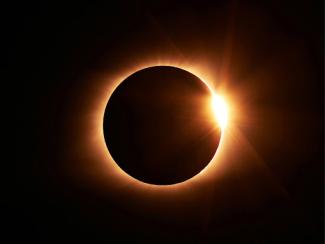
The beginning of the 1971 Attica Prison Uprising was more than a massacre.
Walking onto D-yard, unshackled, the open sky above their heads, “was as though we had stepped into another world,” said rebellion leader Richard X. Clark. “Suddenly the sun was shining and everyone was smiling … I felt liberated; I had a sense of freedom.”
The same went for the night, one elder lamenting, “I haven’t seen the stars in twenty-two years.”
Music played. Fresh air surrounded them. Men exchanged hugs and tears. They organized, finding bedding, water, and food.
The 30,000 incarcerated today in New York prisons asked for a mere fraction of that sense of freedom: the opportunity to watch April 8’s solar eclipse.
Instead, the Department of Corrections and Community Supervision decided to plan a three-hour lockdown surrounding the sheer minutes of the eclipsed blackout. No visitation. No usual outside recreation time.
An interfaith group of incarcerated men is suing, arguing that the decision violates their constitutional rights. The celestial event won’t happen again in the U.S. until 2044.
It warrants “gathering, celebration, worship, and prayer,” they say.
It’s difficult not to think of Attica’s rebels, as this collective fights for the right to even a single moment of awe, imagination, and freedom. One moment reminds us of the possibility that there could be so much more.